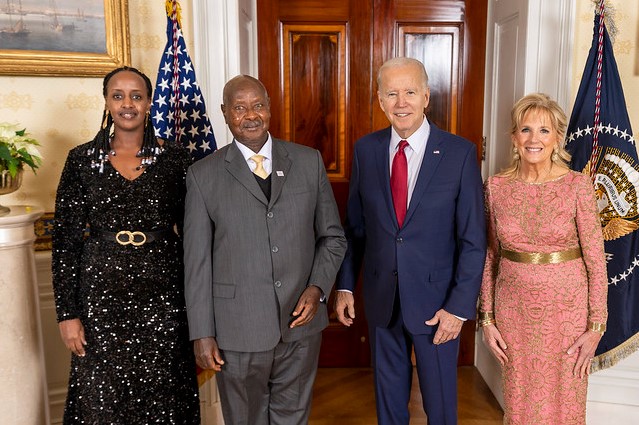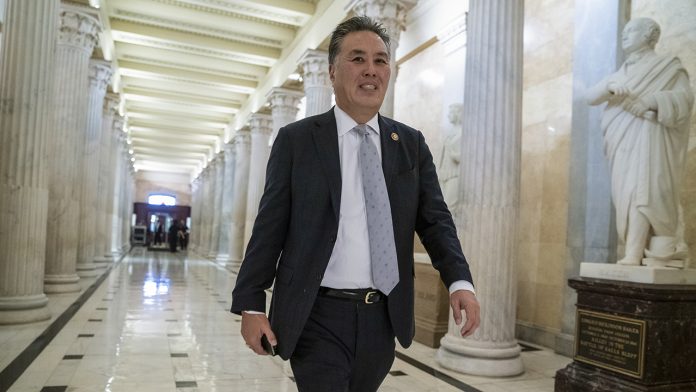Several lawmakers in the US House of Representatives are introducing a resolution that seeks to condemn and put pressure on Uganda to repeal the “Anti-Homosexuality Law” that it passed last year. “The House of Representatives condemns the government of Uganda’s criminalization and draconian punishments regarding consensual same-sex sexual conduct and so-called ‘promotion of homosexuality,’” the resolution reads.
The Legislation
Uganda’s Anti-Homosexuality Law passed through parliament in March of last year. The law seeks to instill harsher punishments for what it refers to as “aggravated homosexuality.” It defines aggravated homosexuality as “homosexual acts committed by anyone infected with HIV or involving children, disabled people or anyone drugged against their will.” While all of these acts were already criminalized under Ugandan law, the Anti-Homosexuality Law instills harsher punishments for them, including the death penalty, if those crimes are committed with someone of the same sex.
Beyond this, however, the law also brings about harsher penalties for homosexual acts in general. People found to have had gay sex will receive life in prison, while homosexual relationships carry a seven-year prison term. It further outlaws simply identifying as gay, emphasizing the “duty” of the community to report LGBT individuals.
Individuals, businesses, publishers, and writers found to be “promoting homosexuality” or advocating for gay rights face a large fine of 1 billion Ugandan shillings, or about $269,000 USD.
The House Resolution
The resolution is led by Representatives Mark Takano (D-CA) and Joyce Beatty (D-OH). The two have called for the continuation of a series of sanctions that have been placed against Uganda and Ugandan officials.
Specifically, the US has placed restrictions upon the visas of Ugandan officials “repressing marginalized populations,” and has issued business and travel advisories for Uganda.
“It is difficult to overstate the gross inhumanity of Uganda’s Anti-Homosexuality Act. Instead of focusing on rooting out corruption or ending extrajudicial killings, the Ugandan Parliament, President, and Constitutional Court have chosen to mark LGBTQ+ Ugandans as less than human” -US Representative Mark Takano
Beyond the sanctions already in place, the resolution supports decreasing US aid to Uganda. The US gives Uganda approximately $1 billion USD annually, primarily for military and health purposes. For Uganda’s health sector, the US aid largely goes towards anti-retroviral treatments for the approximately 1.4 million Ugandans who live with HIV-Aids.
The funds for the health sector are under the US’ “President’s Emergency Plan for Aids Relief'”(Pepfar), which seeks to combat HIV-Aids in numerous countries worldwide.
A total of 21 representatives are reported to be supporting Takano and Beatty’s resolution before it has been tabled.
In addition to the sanctions, US President Joe Biden in December removed Uganda from the African Growth and Opportunity Act (AGOA), after deeming they “do not meet the requirements.”

AGOA establishes the ability for sub-Saharan African countries to export over 1,800 products to the US duty-free, on top of over 5,000 products already duty-free under the Generalized System of Preferences program.
The act states it has “rigorous eligibility requirements,” which require that “countries must establish or make continual progress toward establishing a market-based economy, the rule of law, political pluralism, and the right to due process. Additionally, countries must eliminate barriers to US trade and investment, enact policies to reduce poverty, combat corruption, and protect human rights.”
The President is given the direct power to determine which nations are eligible. President Biden also removed the Central African Republic, Niger, and Gabon from the deal.
The four nation’s removal from the act became effective upon January 1st, 2024. If the necessary reforms in each nation are enacted, they have the potential to be added back to the act’s beneficiary nations.
Ugandan Reluctance
Despite pressure from the US, Uganda has proven unwilling to repeal the bill. President Yoweri Museveni stated after Uganda’s removal from AGOA that Uganda’s unity would carry the nation through any attempted economic pressures, adding that the US was “wasting their time.”
“Some of the people who get carried away by linking up with foreign interests forget our strengths. For somebody to come and say ‘unless you follow what I’m telling you I’ll not…..’ they are really not serious. If we divide ourselves then we’ll be weak, but if we don’t divide ourselves then there’s nothing we cannot do…Those putting pressure on us are just wasting their time” -Ugandan President Yoweri Museveni in January 2024

It remains unclear if the potential cut to US aid to Uganda will have any effect upon Museveni’s commitment to keep the bill, though if his former statements are to be believed, Museveni will remain defiant on the matter.

